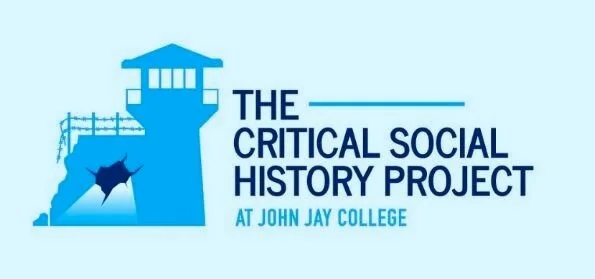I knew that was not where I belonged; I had made horrible decisions and gone down an incredibly dark path but I had the capacity for so much more.
Read moreThe Rikers Diary: Chapter One
By Camilla Broderick
When I arrived on Rikers Island, handcuffed to someone I had never met in the back of a transport van, I only had one thing on my mind: how terrible the next 72 hours were going to be. I had been through heroin withdrawal before of course, but I had never been to jail. In fact all I had ever seen were shows like “Lock-Up”, and that was really all I knew about jail. We arrived in intake in the late afternoon, I still felt okay at this point I was mostly just scared. It was that kind of anxious and scared where you can’t even tell how fast time is going, I spent about 12 hours in intake, there was nothing to do I just sat there for 12 hours with my thoughts. When I went to see a doctor as part of the intake process they noticed old scars on my arms, they put me in suicide watch “just to be safe”. I was not suicidal, I was seen as a liability for them, I guess. They escorted me, in my new brown baggy uniform, to building 9. An old decrepit space in the Rose M. Singer Center, that housed the psychiatric patients.
The walls were brick painted pink and peeling, the doors heavy metal with a slot to see in, unable to be opened without a key. The suicide watch cell was upstairs, I had to remove all my clothes and put on a metal blanket that was similar to what the dentist makes you wear when you get an x-ray. It was heavy and green and incredibly uncomfortable. And then the officers closed that heavy door and left me alone in a dark room for 24 hours, peeking in the window every thirty minutes. They pushed food in through a slot with no utensils; if I had wanted to eat I would have had to eat with my hands. I was too sick to eat now, I couldn’t sleep, and there was nothing to distract me from the withdrawal pain. After 24 hours the doctor came and asked if I wanted to be taken off suicide watch and put in general population. Suddenly I remembered all those episodes of “Lock-up” and I panicked. I thought I would be in danger if I went to gen pop. I asked to stay in building 9, but not to be on suicide watch anymore. So I was put in a group cell with 3 other women in the psychiatric unit.
We all shared one metal toilet in the center of the room that had no door. The showers were disgusting, the showerheads had maggots that came out of them, and there were bugs in the drains. There were feces smeared on the walls regularly. The women in this unit needed medicine for schizophrenia, however Rikers has a list of approved medication and there aren’t a lot of different kinds on there. Many refused to take their meds, and Rikers could not forcibly give it to them without a court order. Many just screamed and screamed throughout the night. They offered me methadone to treat my heroin withdrawals, however I had been on methadone before and I never wanted to go back. I had so many side effects and it never helped me stop using heroin. I decided to continue to detox on my own. I did not sleep for 3 solid days and couldn’t stop shaking. It was October and they had run out of sweaters, so I couldn’t get warm. It took about a month to fully get out of the withdrawals. When I did I realized that I wasn’t safer here in the psych unit, if anything I was in more danger. At least in general population they would have a reason for picking a fight with me, here they fought with other inmates because of their mental illness. I spoke to a doctor who decided I would be a good fit for a new unit called the “intensive treatment unit” which ran Dialectical Behavioral Therapy groups everyday and in return you lived in a new clean 50 bed dorm with about 15 other women. We went to individual and group therapy, art therapy, and had community meetings.
The shift in atmosphere was incredible; it was safe, clean, friendly, and even upbeat. I spent the remaining 7 months of my sentence in the I.T.U, and never worried about my safety again. I have very bad insomnia, and have always taken medication for it, along with anti-depressants and medicine for migraines. The only medicine I continued to get was the one for migraines that I had to fight for, and even then it was not the right dose, it was 1/10 of my real dose. Rikers would not prescribe any sleeping meds whatsoever, even while I was awake in withdrawal and desperately needed sleep. Eventually they gave me a huge amount of Benadryl instead that would be given whenever they decided medication time was, which could be as early as 5 or 6 pm. I withdrew from sleeping medicine, heroin, and anti-depressants all at once because mental health medication is so seldom implemented. On the day I packed up to leave Rikers Island they gave me a prescription for my migraine medicine to take home, a metro card, and left me at a bus stop. I never actually received any substance abuse treatment there, yet I got myself clean. In my experience, Rikers Island is not designed to actually treat its inhabitants, only to placate and hold them for their determined stay. When there is no one addressing the underlying issues going on, we can’t be upset that the jail remains a rotating door.

